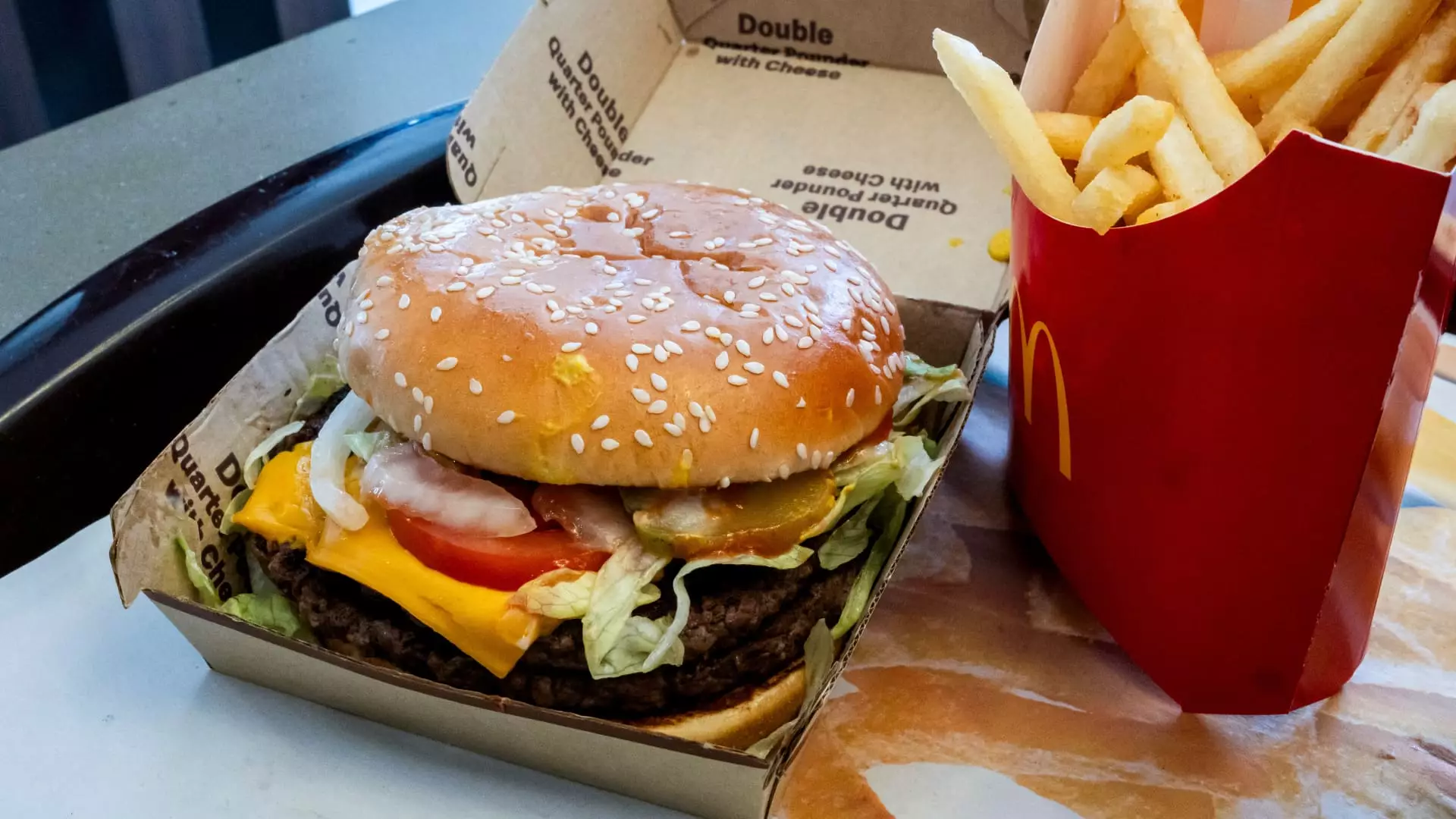McDonald’s, the well-known fast-food powerhouse, recently faced a significant crisis as a result of a deadly E. coli outbreak linked to its celebrated Quarter Pounder burgers. After reports indicated a dangerous level of contamination, the fast-food chain made the difficult decision to withdraw the popular menu item from nearly 900 of its restaurants across the United States. This incident affects roughly one-fifth of its entire U.S. footprint, raising alarms among public health officials, customers, and investors alike.
Health authorities are still investigating the origins of the outbreak, and contingency measures are being put in place to ensure consumer safety. Notably, affected locations—spanning states such as Colorado, Kansas, and Wyoming—will be serving Quarter Pounder burgers without slivered onions for an unspecified duration. This removal of an ingredient that may be linked to the outbreak reflects the fast-paced, often reactive nature of the fast-food industry when public health issues arise.
Cesar Pina, McDonald’s Chief Supply Chain Officer, reassured stakeholders in a public letter that the outbreak appears to be linked to specific ingredients and geographic regions. He confidently stated that the contaminated products have been eliminated from their supply chain, an assertion that is crucial in restoring customer trust. The Colorado Department of Agriculture’s testing results, which found no E. coli in the beef patties, further reinforced this message. However, the FDA continues to investigate, particularly focusing on slivered onions sourced from Taylor Farms as a probable source of contamination.
In response to the unfolding situation, McDonald’s quickly severed ties with Taylor Farms as a supplier for onions, underscoring the importance of maintaining rigorous safety standards. Simultaneously, they have urged their beef suppliers to expedite production of fresh patties to replenish the Quarter Pounder stock across their restaurants. This situation highlights a larger trend within the quick-service restaurant (QSR) industry, one where supply chain agility is critical for reputational management and operational continuity.
Customers can anticipate the gradual re-introduction of the Quarter Pounders in affected areas, but it’s contingent upon delivery and resupply logistics. Such operational strategies may conflict with consumer expectations of consistent menu offerings, particularly when the burger is a staple for many patrons.
The public health ramifications of the outbreak are severe. With the Centers for Disease Control and Prevention (CDC) reporting 75 cases confirmed across 13 states, the seriousness of the issue cannot be overstated. Among these cases, 22 individuals were hospitalized, and one reported fatality tragically highlights the potential consequences of foodborne illnesses. A particular note on hemolytic uremic syndrome—a serious condition that can develop from E. coli infections—raises further alarm.
This stark backdrop of illness and fear places enormous pressure on McDonald’s President, Joe Erlinger, who publicly apologized in a video statement. His empathy towards customers feeling “ill, scared or uncertain” not only humanizes the corporation but signals recognition of the profound trust that fast-food customers bestow upon such large entities. The balancing act between being operationally efficient and prioritizing customer well-being has never been more visible.
Market reactions demonstrated an immediate impact, with McDonald’s shares seeing a 7% decline since the outbreak was linked to the chain. This drop reflects a broader sense of unease that investors feel during public health crises, which can lead to decreased customer traffic and diminished trust. Furthermore, the upcoming report of third-quarter earnings is drawing heightened scrutiny, as stakeholders analyze how this outbreak may influence McDonald’s financial performance.
The Quarter Pounder E. coli outbreak serves as a wake-up call to not only McDonald’s but the entire fast-food industry. It underscores the need for stringent food safety measures, agile supply chain management, and above all, transparent communication with customers. As McDonald’s navigates this crisis, its response could very well determine its reputation and customer loyalty in the long run. The road to recovery may be fraught with challenges, but it also offers an opportunity to reinforce commitment to public health and consumer safety.

